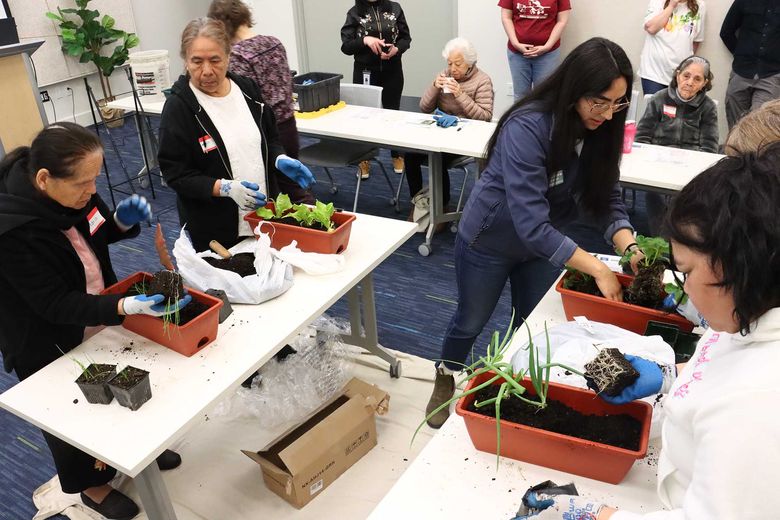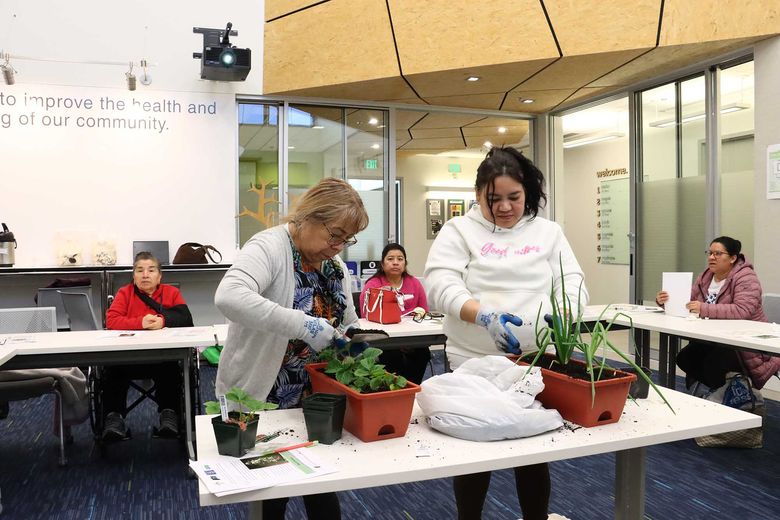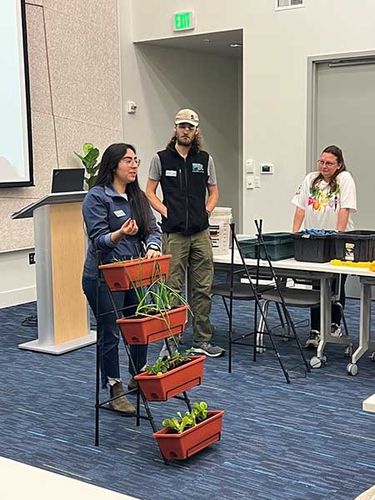
Harvest at Home Project Profiled in The Seattle Times Giving Guide
Vertical gardening puts fresh, healthful produce within reach
With increasing food costs, rising demand (by up to 36%) at local food banks and funding to these banks and food pantries being threatened under the new administration, food self-sufficiency is turning into less of an ideal and more into an essential choice for many. It makes sense that gardening at home will continue to make its way into the spotlight. As residents explore options for cultivating their own food, vertical gardening — an innovative method of growing plants on vertical structures — proves ideal for people with limited space and those with limited mobility or reach, too.
Yet while gardening is a viable solution for some, it does come with plenty of challenges that can prevent low-income residents and families from taking part. According to Lisa Edwards, superintendent of Verdant Health Commission, gardening can be expensive because of the startup costs for supplies like containers, soil, fertilizer and plants. Folks can also have a tough time getting started or accessing expertise along the way. “Language barriers and knowing who to talk to can also be a barrier,” she adds, “as we now have more than 130 languages spoken in South Snohomish County.”
As one successful example of making this kind of gardening more accessible, Verdant Health Commission is partnering with Snohomish Conservation District to pilot Harvest at Home — a free program to increase access to gardening for residents of South Snohomish County. “Harvest at Home will provide access to vertical gardening kits, a method of growing plants on vertical structures which is ideal for people with limited space,” Edwards says. “The pilot will partner with community organizations Homage and the Washington West African Center to connect to seniors who have space and resource limitations, along with an interest in growing their own food.”
Participants also will attend a workshop where they’ll learn how to successfully grow several culturally relevant foods on vertical structures. Through this program, two edible community gardens will be developed, too — one in partnership with the Edmonds Boys & Girls Club. A community garden will allow them to start a gardening club to educate and engage elementary students in after-school and summer programs. The second garden, at SeaMar Community Health Center in Lynnwood, will incorporate gardening into health education programs that promote nutrition as a means to manage such conditions as diabetes and heart disease.
The challenge with nonprofits wanting to start a gardening program often can be startup costs, Edwards admits. “In our project, we were able to match Verdant funding with funding that The Snohomish County Conservation District was able to secure,” she says.
Edwards hopes that their model might be helpful for other organizations and nonprofits wanting to follow suit. “We know that high-fat, high-carbohydrate foods are inexpensive, and healthy foods are more expensive,” she shares. “This model will empower residents to grow their own vegetables at their residence that they can easily maintain and access.” Also, their pilot will demonstrate an ongoing effort to increase community access to healthy foods and gardening as a positive mental health activity — something that can be replicated in communities near and far.
Within their whole community, Verdant aims to increase access to quality health services and programs. Since 2011, they’ve invested more than $87 million in community organizations.
Gardening brings about plenty of other complementary benefits, from fostering social connections and intergenerational learning, to encouraging healthy eating habits.
Edwards says, “The most gratifying part of the experience working for Verdant is collaborating with nonprofit organizations to bring new health programs to the community that most likely would not exist otherwise.”
For those wanting to also get involved and build their own, similar nonprofit, Edwards says, “Reach out to the WSU master Gardener Program and Conservation District in your area to explore opportunities to adapt and/or replicate this model.” Now that the seeds have been sown, hopefully these ideas can expand and flourish.
Verdant Health Commission, also known as Public Hospital District No. 2, Snohomish County, works to ensure quality health care is available to all residents of South Snohomish County by funding nonprofits that increase access to health care.



